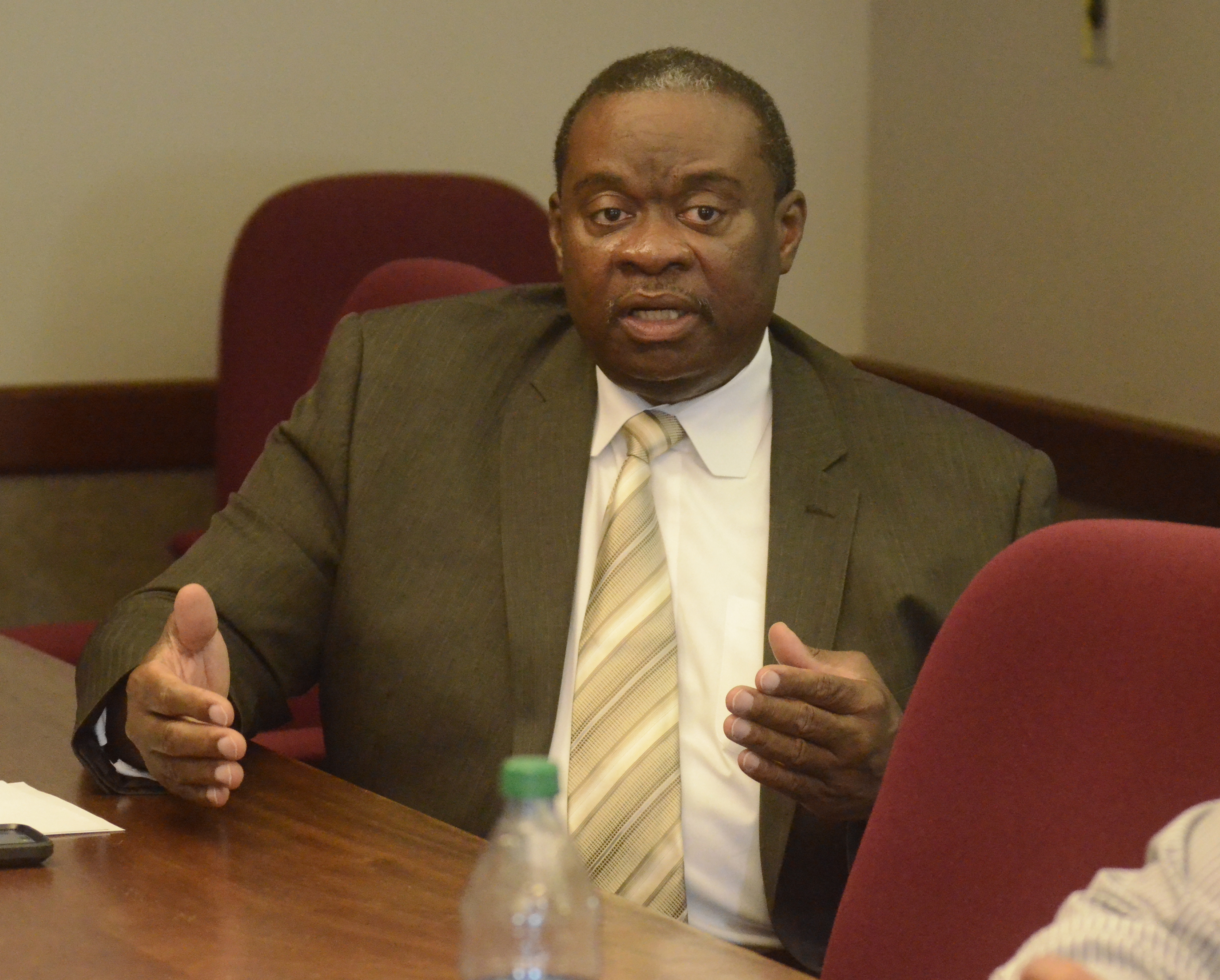Chattanooga Councilman Yusuf Hakeem is hoping his city could be the next to "ban the box" - stop asking job-seekers about their criminal histories when they first apply.
Hakeem said he hopes to introduce a resolution Tuesday to strike the question regarding criminal history from the city's job application form.
"There's a lot of talent in people who have been incarcerated and we need to take advantage of that talent in the work pool," said Hakeem, who has been working with the mayor's office on a proposed policy.
If the council approves the resolution, the city will pull the question immediately, according to an email Thursday from Lacie Stone, the city's communications director. It's not clear how the move would be reconciled with a City Charter provision requiring job applicants to be able to vote. People convicted of felonies lose their voting rights.
But if the council goes ahead, Chattanooga will join more than 100 city governments in 19 states, including Nashville, that joined the Ban the Box movement and no longer ask about criminal history on city government job applications.
And President Barack Obama announced this month an executive order mandating that federal hiring officials also "delay inquiries into criminal history until later in the hiring process."
The idea is that by not asking the question up front, an employer gets to know the applicant's qualifications before dismissing his or her application because of criminal history. The prospective employer can ask about that history during the interview, allowing the applicant to explain.
"If we're going to be that great model city, it would seem that this would be a no-brainer," said Chattanooga Hamilton County NAACP President Dr. Elenora Woods. "We've got to Ban the Box to give people opportunity to work, to be productive citizens without having that over their heads."
But not all Chattanoogans advocate for the Ban the Box policy.
Former city councilman and business owner Manny Rico said delaying a question about an applicant's criminal history wastes the applicant's time and his.
"I understand and I'm sympathetic, but as an employer, I want to know what kind of person I'm employing because the past does make a difference. I know people deserve a second chance, but if they can give me a reference, that would help," said Rico, owner of Rico Monuments.
An estimated 70 million U.S. adults - one in four people of working age - have criminal records, according to Michelle Natividad Rodriguez, senior staff attorney with the National Employment Law Project.
People of color make up more than two-thirds of the 2 million-plus incarcerated Americans, according to the NAACP.
Local NAACP officials have been pushing for Chattanooga to adapt a Ban the Box policy for nearly two years, but City Attorney Wade Hinton said the action may require a vote to amend the City Charter.
Speaking to local NAACP members Tuesday, Hinton said the charter's restriction of city jobs to eligible voters was a part of the court order after the historic 1989 case, Brown v. The Board of Commissioners of the City of Chattanooga.
That ruling changed city government from at-large commissioners to a full-time mayor and council elected by districts. The change was aimed at improving minorities' ability to elect representatives from their communities.
NAACP Secretary Erick Atkins questioned whether the city is serious about minority employment.
"My question is, does our city government understand how imperative it is for us to ban the box?" Atkins asked.
"We have 19 states, 100 cities, including the city of Nashville; we have the federal government with President Obama by executive order," Atkins said. "Do we know how imperative it is to pass Ban the Box and give our citizens hope and a fair chance at a second chance?"
Hakeem said that if the resolution passes, it might be August before an election could be held to amend the charter.
Contact staff writer Yolanda Putman at yputman@timesfreepress.com or 757-6431.

